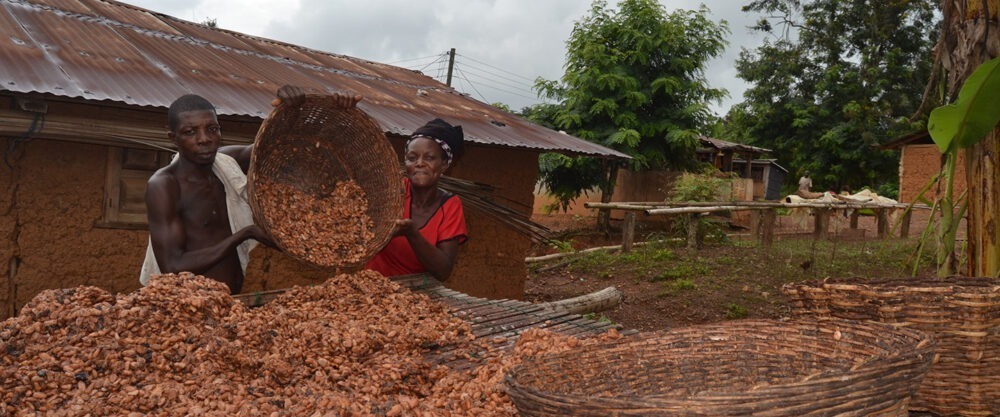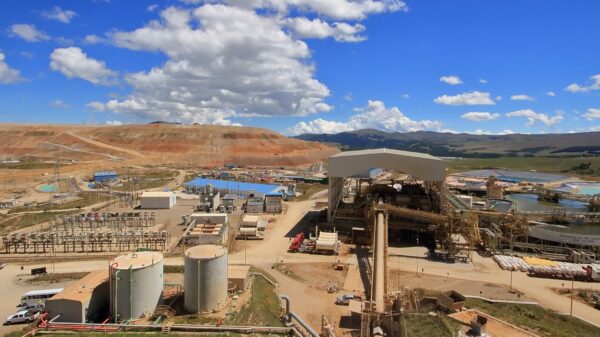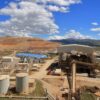The price of chocolate is likely going to go up as cocoa farmers are abandoning the crop in favour of illegal gold mining, courtesy of sky high gold prices.
Reported on Wednesday, the bump in illegal gold mining, which the locals call ‘galamsey’ in Ghana, have also resulted in increased pollution of cocoa-bearing land.
The price of gold has risen 37 per cent in the past 12 months due to central bank purchases, geopolitical distress, concerns about US debt, inflation, and a shift by some nations towards de-dollarisation.
The rise of galamsey is intensifying a crisis that caused cocoa yields in the West African country to drop 20 per cent last year. Crops in Ghana and the Ivory Coast produce more than half the world’s cocoa. They have declined since the 2020-2021 season, battered by climate change, disease outbreaks, and chronic under-investment, the report said.
“Anyone that goes up country sees it wherever they go. And it devastates every farm it touches,” Antonie Fountain, MD of the Voice Network, a non-profit for sustainability in cocoa.
“Once galamsey has been in your farms, the soil and water are a contaminated wasteland.”
Small-scale mines account for about 40 per cent of its total gold output, compared to concessions operated by multinational firms. According to a report by Reuters last year, 70 to 80 per cent of the small mines are unlicensed.
The trade faces challenges like climate change, disease, and under-investment, impacting yields and the livelihoods of millions of farmers.
Read more: Calibre Mining beats updated gold production guidance with 242,487 ounces
Read more: Calibre Mining’s mineral resource estimate in Talavera gives reasons for optimism
Protests highlight environmental and social impacts
The rise of illegal gold mining has led to deforestation, river pollution, and the destruction of farmland, impacting local communities. Despite its economic benefits, galamsey often operates under hazardous conditions, with workers exposed to dangerous chemicals like mercury. The government has cracked down on illegal mining, but the industry remains resilient, driven by high gold prices.
Protests surrounding galamsey in Ghana have also grown due to the environmental and social impacts of galamsey. Communities in regions like the Ashanti and Western areas have voiced concerns over the destruction caused by unregulated mining activities.
Furthermore, protesters argue the government’s response has been inconsistent, with some calling for stricter enforcement of mining laws. Meanwhile, others have criticized the crackdown for disproportionately affecting poor miners rather than addressing the root causes of the problem. Tensions have escalated between those in favour of regulating galamsey to provide better working conditions and those advocating for stronger measures to combat its environmental consequences, leading to frequent protests and public outcry.
“Galamsey has almost become like a drug cartel funded by people very close to power,” said Enoch Randy Aikins, an analyst at the Institute for Security Studies. “If you have party officials and influential people involved, it becomes difficult for any government to crack the whip.”
Read more: Equinox Gold acquires Calibre Mining for $2.6B
Read more: Calibre Mining beats gold guidance for 2024 in Nevada and Nicaragua
Environmental effects harm farming and fishing industries
Illegal gold mining has also caused significant economic damage in Ghana, primarily through the loss of tax revenue.
The government is unable to collect taxes from illegal mining, depriving the state of income for public services and infrastructure. Furthermore, the practice’s environmental effects harm both farming and fishing industries, leading to reduced productivity in these sectors.
Additionally, the tourism industry, reliant on Ghana’s natural landscapes, suffers due to the destruction of ecosystems, diminishing the appeal of key tourist destinations.
The health costs associated with the hazardous conditions in illegal mining areas includes exposure to mercury and other toxic substances. This puts a strain on public health resources.
.














